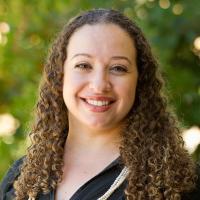Intercultural and Global Engagement Leadership
Westmont’s commitment to diversity is the responsibility of many members across its community made up of trustees, executive leadership, faculty, staff, students and external organizations and resourceful groups.
The Work of Arrabon
Arrabon equips Christian leaders and their communities to effectively engage in reconciliation. Westmont’s two-year agreement with Arrabon from 2020-2022 includes activities such as coordinating and leading focus groups, workshops, planning, and programming across the Westmont community for its faculty, staff, and students.
Arrabon will facilitate the convergence of shared knowledge, language, and civil dialogue for the entire Westmont College community to gain a shared vision and be on the transformational journey to becoming a reconciling community.
The Arrabon Process
Ethics is the preferred apologetics for Gen Z. In previous generations, evangelism was about answering questions of epistemology, “How do we know?” In this generation, young people are asking, “What do we do about what’s broken in this world?” When a Christian community is on the transformational journey of becoming a reconciling community, we become a ‘foretaste’ of the Kingdom of God that this generation is longing for.
David Bailey, Executive Director
Arrabon
Diversity and Global Engagement Trustee Committee:
A committee representing members of Westmont's Board of Trustees, chaired by Edee Schultze, Vice President for Student Life, and Provost Mark Sargent, address and discuss Westmont's strategic planning efforts to support initiatives centered on diversity and global engagement opportunities as identified in Westmont's strategic plan. This group works to prepare Westmont students to address long-standing, embedded issues in culture and society. This group meets three times a year.
Campus Diversity Committee:
The purpose of the diversity committee is to address and focus on specific diversity initiatives that advance the mission and vision of Westmont’s commitment to diversity. The responsibilities of this committee include:
- Establish links with others across the Westmont community who are working to address diversity-related issues—including Trustee Diversity Committee, Executive Team, Human Resources, Residence Life, Intercultural Programs, Diversity Recruitment Specialists, and Off Campus Programs.
- To seek to build community-wide awareness and ownership of diversity-related issues and of appropriate ways to address them.
- To summarize the various challenges and opportunities related to diversity that currently face the College.
- To enlist additional faculty, administrators and staff to work with the Committee on special initiatives.
- To recommend priorities and propose implementation plans to the President’s Executive Team.
- To make annual reports on the Committee’s work to the Faculty, the Executive Team and the Trustee Diversity Committee.
Members of This Committee:

Westmont has named Dr. Carmel Saad, a psychology professor at the college since 2012, as the inaugural director of the Carol Houston Center for Justice, Reconciliation and Diversity and Westmont’s first chief diversity officer.


